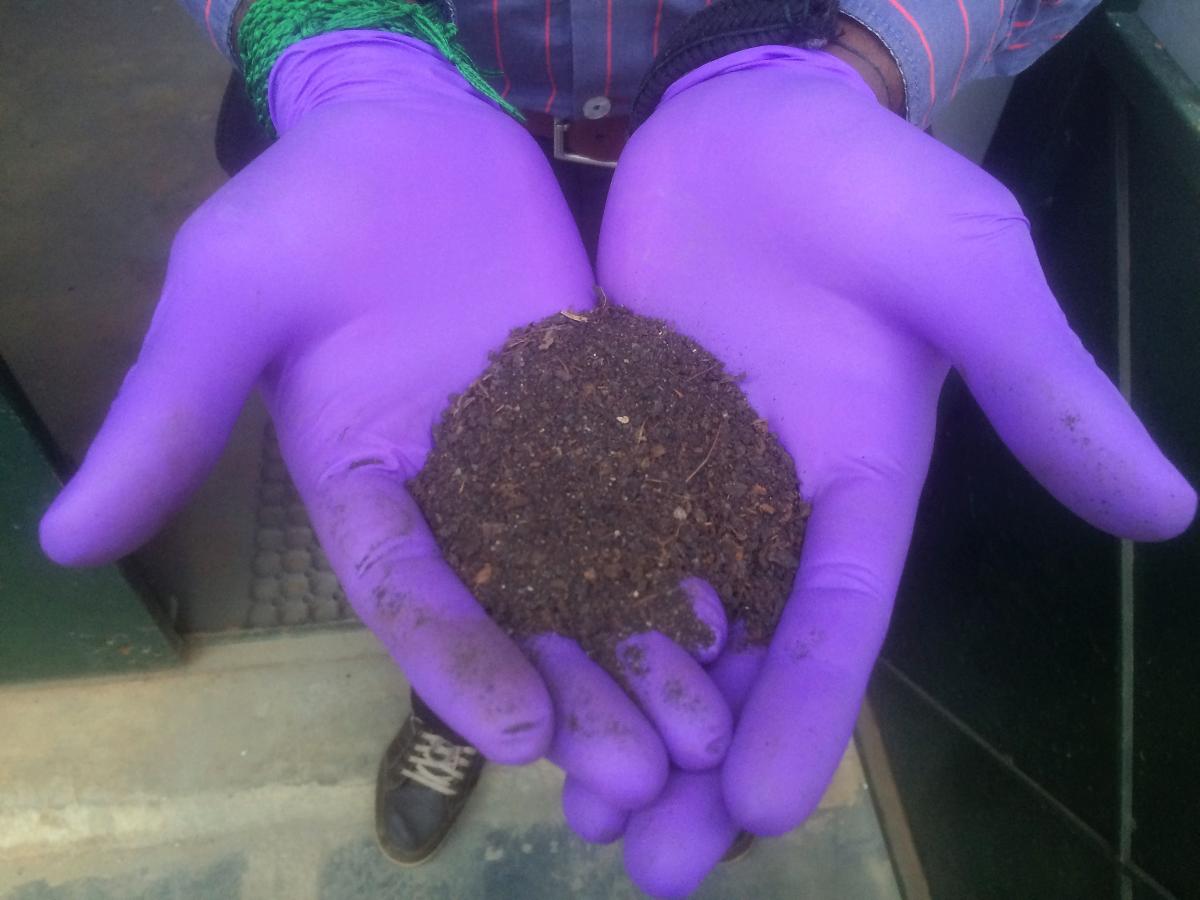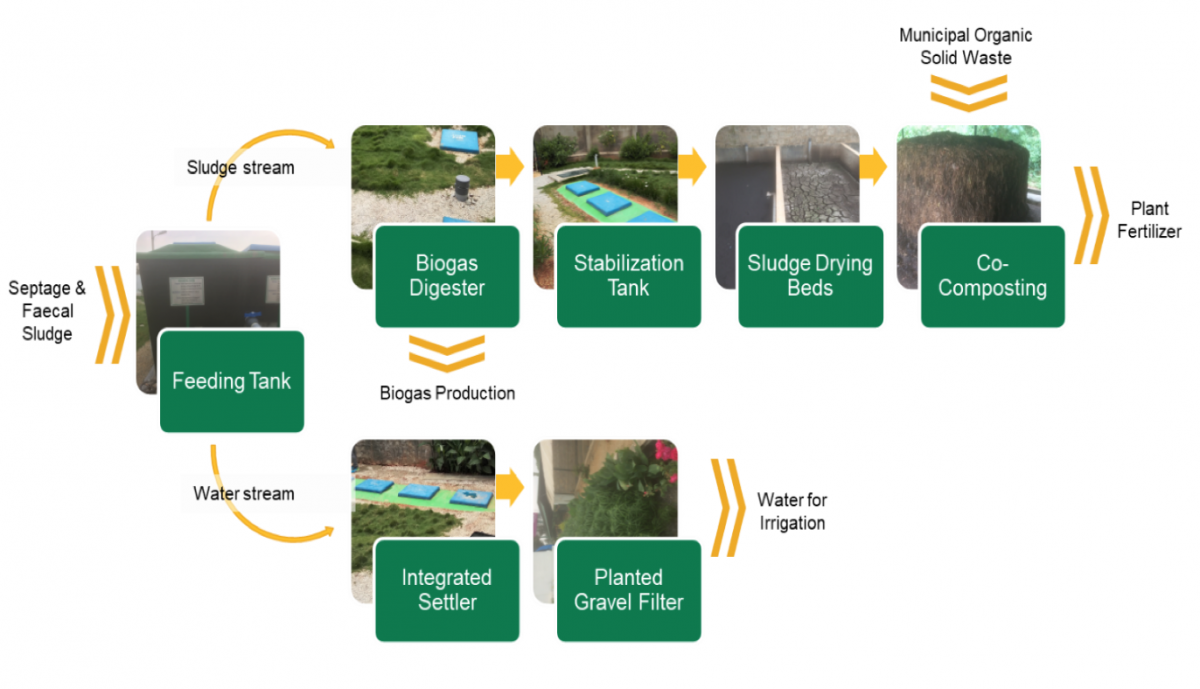Lessons from Devanahalli on Urban Faecal Sludge Management
Devanahalli, a small municipality outside Bangalore with a population of 30,000 people, has successfully set up a faecal sludge treatment plant (FSTP) to provide end-to-end solutions for faecal sludge management (FSM). The Devanahalli Town Municipal Council (TMC) partnered with the Bangalore-based not-for-profit Consortium for DEWATS Dissemination (CDD) Society and the German NGO Bremen Overseas Research and Development Association (BORDA) for this project.
The entire municipality of Devanahalli is unsewered, and most households use onsite collection systems such as septic tanks and pits, which – once filled – get cleaned by desludging vehicles, called honey-suckers. Until CDD Society, BORDA and the TMC started their FSM operations in November 2015, fresh sludge from pits and septic tanks was disposed of on vacant lands or was directly delivered to farmers as per seasonal demand. The application of highly contaminated raw sludge on fields posed risks for workers directly exposed to pathogen contents, as well as in some circumstances, for consumers of agriculture products. By transforming the way we look at wastewater management – from being a financial burden on the municipality to a possible source of revenue generation – projects like these can help cities find holistic and sustainable solutions to address the increasing demand for water.
The unique characteristic of the pilot FSTP is that it is built on existing collection and conveyance systems. By using the available desludging services retrofitted with an environmentally sound disposal solution, safer fertilizers could be delivered to farmers and risk of contamination of open lands due to illegal dumping was minimized. Furthermore, the plant has low operational and maintenance costs, as it runs on gravity and does not use of electricity or any chemical additives.
Currently, 2,000 to 2,200 litres of sludge are getting treated daily and dried in different modules of the FSTP. Later, this is mixed with organic municipal solid waste to produce compost, which – after quality tests – is sold to farmers for agricultural use. Other by-products are the daily generation of 300 litres of biogas, used for cooking by the plant’s operator, as well as wastewater that is reused on the spot to irrigate the plant’s landscape.

Compost is one of the treatment output products, generated at the FSTP in Devanahalli. Co-treated faecal sludge and municipal solid waste is sold to farmers for agricultural use and enables to municipality to increase its revenue.
While advanced treatment technologies can generate high quality output products, India’s first FSTP showcases a low-cost, low tech option for faecal sludge treatment at a municipal level. Such a system can be embedded in existing infrastructure and processes and follows the approach of a circular economy, reusing all output products that are being generated in a sustainable and integrated way.
The case of Devanahalli illustrates that closing loopholes can be achieved by an integrated understanding of on-ground situations. A understanding of local markets, feedstocks, existing formal and informal institutions, stakeholders as well as their networks and capacities, local willingness to use and willingness to pay enable recovery and reuse of wastewater and faecal sludge. Such ecosystems must be created for effective and sustainable economies for wastewater to develop and sustain.
The FSTP in Devanahalli since its inauguration has attracted attention from municipalities, funding agencies and other stakeholders. Meanwhile, the plant not only treats the faecal sludge supplied, but also functions as a laboratory to make the technology and processes more efficient and to test possible reuse means of sludge-based compost in agriculture. Adopted to local situations, “the Devanahalli-approach” has been replicated in different locations, e.g. in Leh/ Ladakh, Bangladesh and Nepal.

The faecal sludge treatment facility at Devanahalli follows the principle of screening, solid-liquid separation, stabilization and dewatering of sludge and pathogen removal. The applied modules for treatment of solid parts are 1) feeding tank, 2) biogas digester, 3) stabilization tank, 4) sludge drying bed, 5) co-composting with municipal solid waste. Liquid components are treated through 1) integrated settler, 2) anaerobic baffled reactor, 3) planted gravel filter, 4) collection tank.